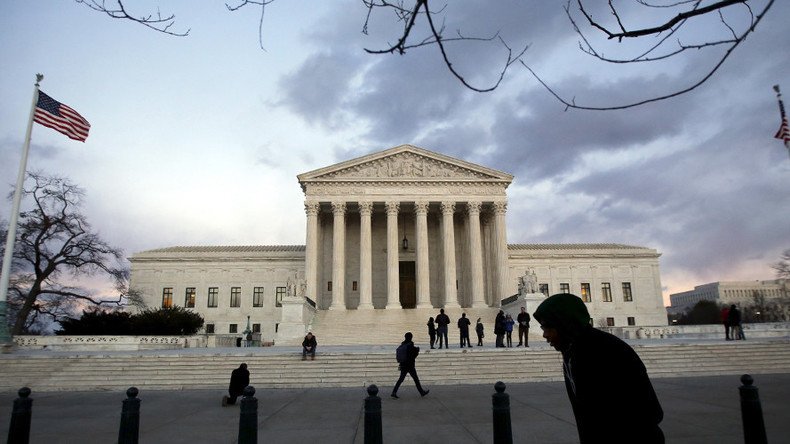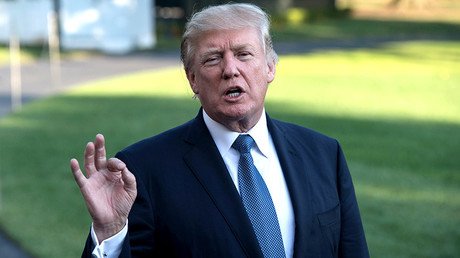US Supreme Court cancels travel ban hearing, looks at Trump’s revised policy

The US Supreme Court has canceled the scheduled October oral arguments in a case that was expected to decide the fate of President Donald Trump’s travel ban. The court ordered a new briefing on whether the administration’s recently revised travel policy means the case should be dismissed.
Oral arguments in the case against Trump’s initial order on travel restrictions for the citizens of six predominantly-Muslim countries will no longer be heard on October 10, as previously scheduled, according to the Supreme Court’s updated calendar.
Additionally, the nation’s highest court has ordered parties to address whether the fact that Trump’s ban on refugees from all countries expires on October 24 renders that aspect of the case moot.
Supreme Court drops Trump travel ban case from argument schedule, orders briefing on effect of revised policy. pic.twitter.com/xkzqgniVGe
— Greg Stohr (@GregStohr) September 25, 2017
On Sunday, the Trump administration announced its new travel restrictions, as the president’s old order barring visitors from six countries – Iran, Libya, Somalia, Sudan, Syria and Yemen – was due to expire that day. Trump dropped Sudan from the list, and added three new countries: Chad, North Korea and Venezuela. The restrictions on Venezuela, however, are designed to target only that country’s leadership and their family members.
Making America Safe is my number one priority. We will not admit those into our country we cannot safely vet.https://t.co/KJ886okyfC
— Donald J. Trump (@realDonaldTrump) September 24, 2017
In response to being added to the list, Venezuela accused Trump of conducting “political terrorism” by imposing travel restrictions.
“It is worth pointing out that these types of lists are incompatible with international law, and constitute a form of psychological and political terrorism,” the Venezuelan Foreign Ministry said in a statement.
“As president, I must act to protect the security and interests of the United States and its people,” Trump wrote on Sunday, adding: “Making America Safe is my number one priority. We will not admit those into our country we cannot safely vet.”
The Trump administration previously said the travel restrictions were meant to guard against potential terrorists coming to the United States.
The administration’s new directives did not address the ban on refugees from all countries, which is still in effect.
Trump’s initial targeting of visitors from six predominantly-Muslim countries was blocked by numerous federal judges who said it was discriminatory, before the Supreme Court in June allowed the ban to partially go into effect, specifying that exemptions must be made for those with “a bona fide relationship with a person or entity in the United States.”
Earlier in September, the Supreme Court blocked a lower court’s ruling which said that “refugees who have formal assurances from resettlement agencies or are in the US Refugee Admissions Program (“USRAP”) through the Lautenberg Amendment” should be allowed into the United States.
In October, the Supreme Court was scheduled to hear a pair of cases which were expected to determine the legality of the president’s order.













